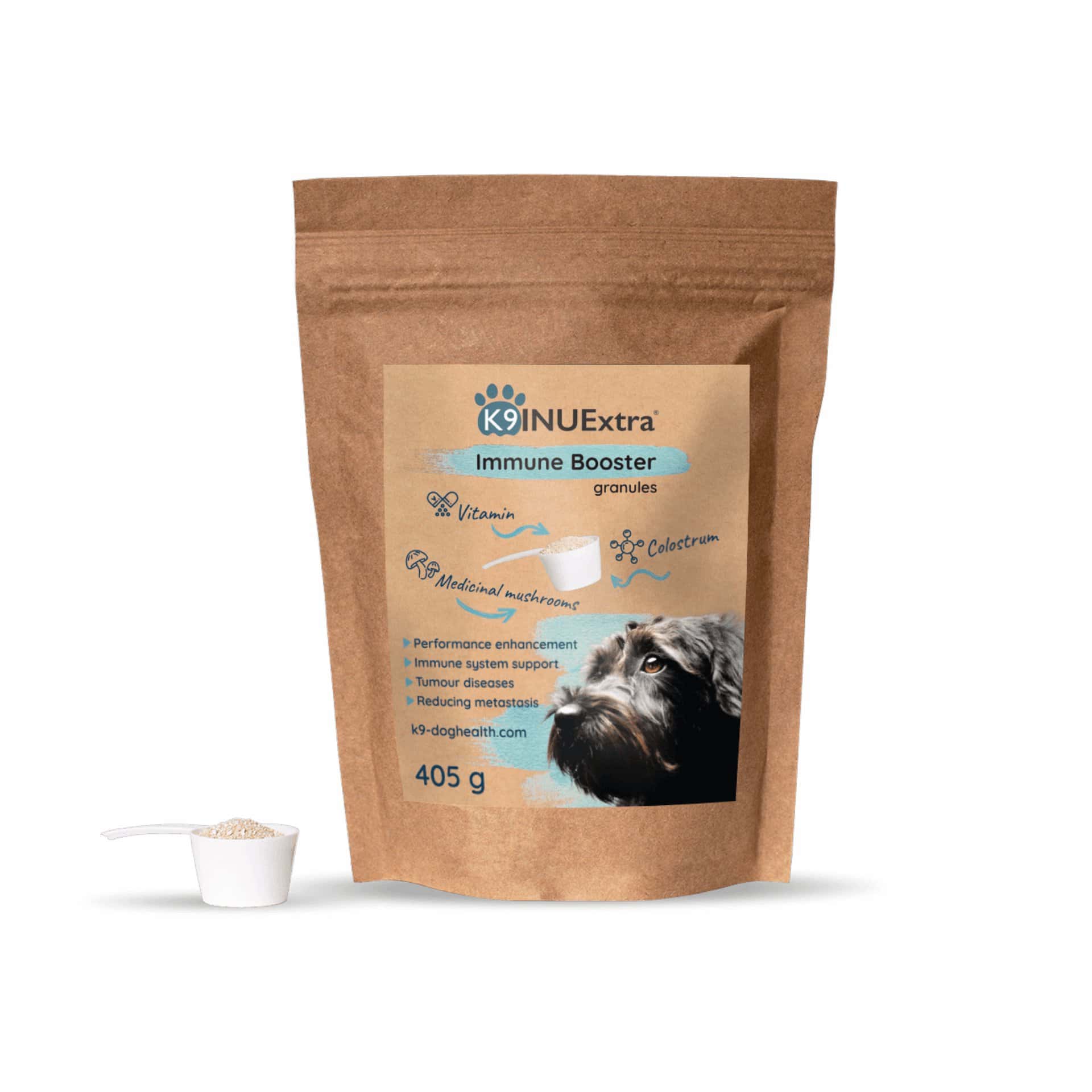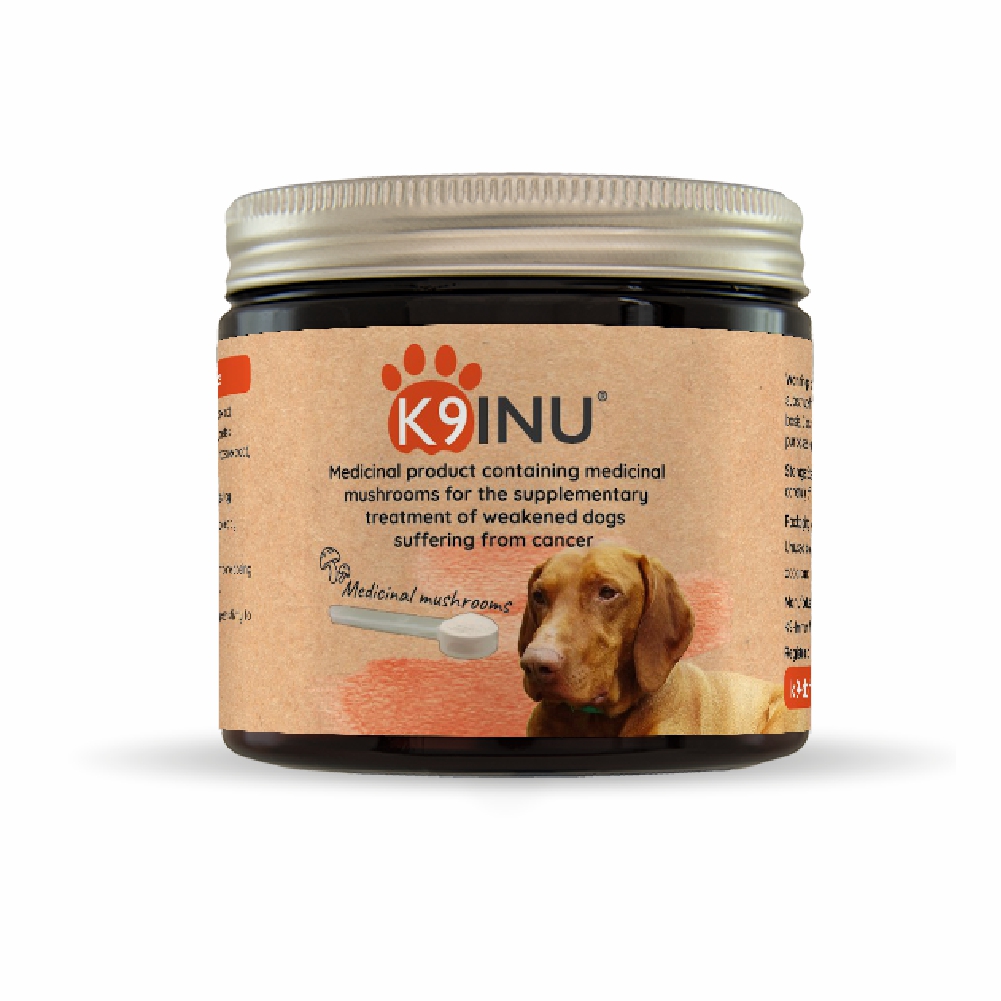In recent years, immunomodulatory therapy has emerged as a powerful new approach in the treatment of cancer in dogs. While conventional therapies like surgery, chemotherapy, or radiation remain essential tools, more and more veterinarians are turning to immune-based strategies to support long-term health and quality of life. One of the most exciting developments? The growing role of medicinal mushrooms as natural immune modulators.
This article explores the origins of immunomodulation, its growing success in veterinary medicine, and how natural solutions like mushrooms can complement your dog’s cancer treatment.
What is immunomodulatory therapy?
This type of therapy isn’t just about fighting disease – it’s about restoring balance to an immune system that has been thrown off course by chronic illness, cancer, or age.
From humans to dogs: the evolution of cancer immunotherapy
The concept of immunotherapy originally comes from human oncology, where it has shown great success in treating conditions like melanoma and lung cancer. As research progressed, veterinary experts began adapting these principles to treat dogs.
In the past decade, canine cancer immunotherapy has grown rapidly. Some treatments involve immune cell-based vaccines, others focus on stimulating the body’s natural killer cells. But many of the most promising therapies are natural immunomodulators that gently, but effectively, enhance immune surveillance.
How immunomodulatory therapy helps dogs with cancer
Cancer cells are smart. They often release substances that suppress nearby immune cells, allowing the tumor to grow undisturbed. Immunomodulatory therapy reverses this suppression, enabling immune cells to recognize cancer as a threat again.
Common types of immune-based therapy in dogs include:
- Immunostimulants like interferons or levamisole to boost white blood cell activity
- Tumor-targeted vaccines that alert the immune system to specific cancer antigens
- Immune cell therapy, such as dendritic cell activation or T-cell transfer
- Natural compounds, especially medicinal mushrooms, that support multiple immune pathways at once
These treatments are often combined with surgery or chemotherapy, not used as a replacement. The goal is to create a multi-layered defense system that supports recovery and improves resilience.
Medicinal mushrooms: natural support for your dog’s immune system
Medicinal mushrooms have been used for centuries in traditional medicine—and today, science is finally catching up. Multiple studies have shown that certain mushrooms contain powerful immune-enhancing compounds, including beta-glucans, polysaccharides, and triterpenes.
The most well-studied mushrooms in veterinary oncology include:
- Shiitake (Lentinula edodes)
- Maitake (Grifola frondosa)
- Cordyceps
- Agaricus blazei Murill
- Turkey tail (Trametes versicolor)

Key benefits of medicinal mushrooms for dogs with cancer:
- Stimulate immune cells like macrophages and natural killer cells
- Support anti-tumor activity and slow down metastasis
- Reduce inflammation and oxidative stress
- Help manage chemotherapy side effects
- Promote vitality and energy during long treatments
Which types of cancer respond well to immune support?
While every dog is different, some tumor types tend to respond better to immune system support, especially when started early. These include:
Immunomodulatory therapy is not a cure – but it can extend survival time, improve quality of life, and help the body recover more effectively.
A practical note for dog parents
Immunomodulation is not a miracle treatment. However, it plays a vital role in an integrative cancer care plan. Especially for dogs who are older, immunocompromised, or cannot tolerate aggressive therapies, natural immunomodulators like mushrooms offer a gentle but effective way to support the immune system.
Many veterinarians now recommend starting immune support as early as diagnosis, and continuing it alongside other treatments.
Real results: better response, better life
Dogs undergoing immunomodulatory therapy often experience:
- Improved response to chemotherapy and radiation
- Longer remission periods
- Reduced side effects from conventional treatment
- Fewer infections or immune crashes during therapy
- Higher energy levels and appetite
- More active, happier behavior, even in the face of illness
Ultimately, this approach is not just about treating cancer – it’s about helping dogs live better, longer lives.
Final thoughts
Immunomodulatory therapy offers a new level of hope for dogs with cancer – not just for a longer life, but for a better one. With the right support, even serious diagnoses don’t have to mean the end of joy, energy, or quality time together. Medicinal mushrooms and other natural immune enhancers are not a replacement for veterinary treatment, but they can be a powerful complement – especially when used early and consistently, with professional guidance. Sometimes, the best way to fight cancer is not only to target the tumor – but to strengthen the whole dog.
Sources:
• Brown, D. C. et al. (2012). Evaluation of mushroom-derived compound polysaccharopeptide (PSP) in canine hemangiosarcoma.
https://doi.org/10.1155/2012/384301
• Vet Med Today: Immunotherapy for Cancer in Dogs (2021). JAVMA News.
https://www.avma.org/javma-news
• Wasser, S.P. (2011). Current findings, future trends, and unsolved problems in studies of medicinal mushrooms.
https://doi.org/10.1007/s00253-011-3436-3




